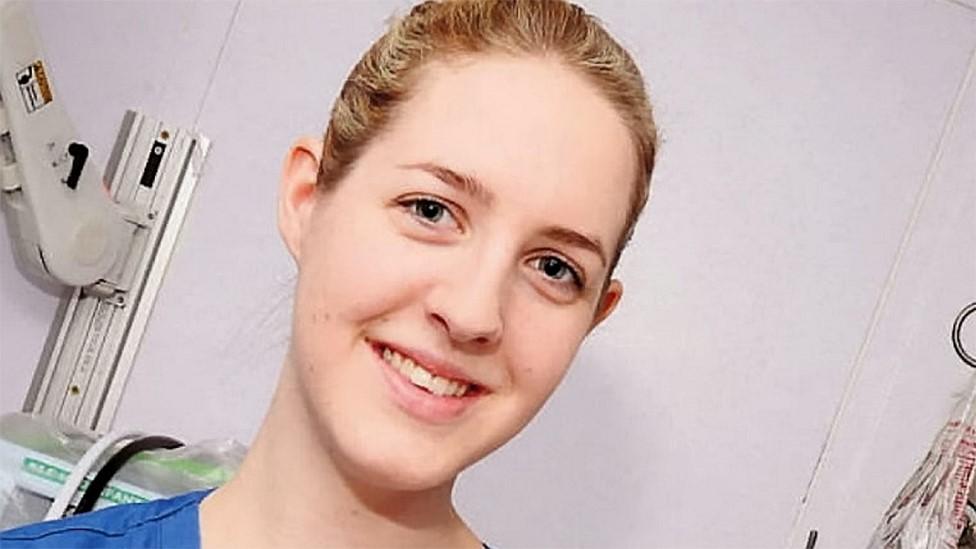Lucy Letby trial: Baby given three doses of adrenaline, court told
- Published

Lucy Letby is accused of murdering seven babies and trying to kill 10 others
Doctors used three adrenaline doses in a 20-minute battle to resuscitate a premature baby allegedly attacked by nurse Lucy Letby, a court has heard.
Manchester Crown Court heard the girl, referred to as Child H, suffered two "profound" collapses at the Countess of Chester Hospital in September 2015.
The jury was told doctors could not find a "trigger" for her deterioration.
Ms Letby, 32, denied murdering seven babies and attempting to murder 10 others between 2015 and 2016.
Jurors heard an emergency crash call went out to medics to attend Child H, who was born six weeks premature, in the early hours of 26 September 2015.
Dr Alison Ventress, who was working a night shift on the neonatal unit, responded to the call.
She told the court that Child H's heart rate had dropped to 50 beats per minute and CPR was commenced at 03:26 BST.
The jury heard over the next 20 minutes, three doses of adrenaline were administered and Child H was eventually stablished at 03:46.
Dr Ventress' notes stated there was "no trigger identified" for Child H's sudden deterioration.
'Clearly unwell'
The court earlier heard that in the days leading up to the "profound" collapse, Child H had suffered a number of other desaturations which required treatment.
Dr Ventress' notes, recorded at 01:25 on 25 September, showed Child H's oxygen levels had dropped to about 30% and in response, the medic performed an emergency procedure, which involved inserting a needle into the infant's chest to drain air.
The court was told the air was being trapped by a suspected collapsed lung and the doctor said the amount drained was "quite a lot for a baby that size".
In the hours that followed, Child H had several more large doses of air drained from her chest and needed a number of chest drains inserting.
Questioned by defence counsel Ben Myers KC, Dr Ventress agreed desaturations in babies like Child H were not "uncommon".
She also agreed with Mr Myers' assertion that Child H had had three chest drains inserted and numerous desaturations in the run-up to the collapse and those procedures were "likely to put strain on a little body like hers".
She added that Child H was "clearly unwell".
Mr Myers previously told the court Child H was another example of "sub-optimal care" by the Countess of Chester and was "nothing to do with Lucy Letby".
The trial continues.

Why not follow BBC North West on Facebook, external, Twitter, external and Instagram, external? You can also send story ideas to northwest.newsonline@bbc.co.uk, external
Related topics
- Published18 January 2023

- Published15 December 2022

- Published14 December 2022

- Published13 December 2022

- Published12 December 2022

- Published6 December 2022

- Published2 December 2022

- Published1 December 2022

- Published30 November 2022
